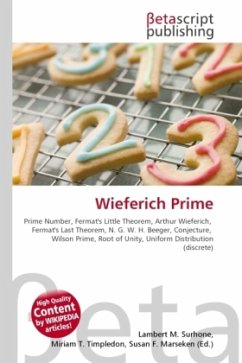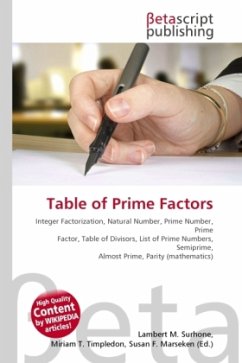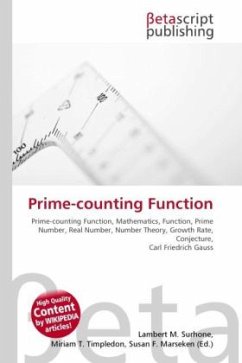High Quality Content by WIKIPEDIA articles! In number theory, a Wieferich prime is a prime number p such that p2 divides 2p ? 1 ? 1; compare this with Fermat's little theorem, which states that every odd prime p divides 2p ? 1 ? 1. Wieferich primes were first described by Arthur Wieferich in 1909 in works pertaining to Fermat's last theorem. The only known Wieferich primes are 1093 and 3511 (sequence A001220 in OEIS), found by W. Meissner in 1913 and N. G. W. H. Beeger in 1922, respectively. If any other Wieferich primes exist, they must be greater than 6.7 × 1015. It has been conjectured that only finitely many Wieferich primes exist. It has also been conjectured (as for Wilson primes) that infinitely many Wieferich primes exist, and that the number of Wieferich primes below x is approximately log log x, which is the heuristic result followed from a plausible assumption that for a prime p, the (p-1)-th degree roots of unity modulo p2 are uniformly distributed in the multiplicative group of integers modulo p2.
Bitte wählen Sie Ihr Anliegen aus.
Rechnungen
Retourenschein anfordern
Bestellstatus
Storno








